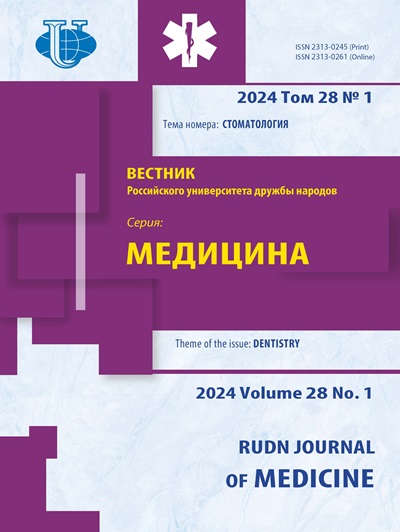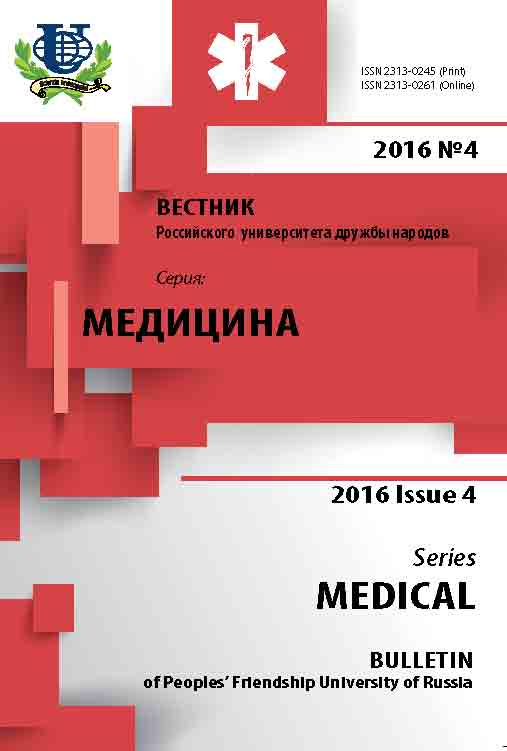Comedication in the structure of drug burden in children in hospital
- Authors: Gudkov RA1
-
Affiliations:
- Ryazan State Medical University
- Issue: No 4 (2016)
- Pages: 60-67
- Section: Articles
- URL: https://journals.rudn.ru/medicine/article/view/14637
Cite item
Full Text
Abstract
Comedication is a reception of drug about the associated diseases. The concept of comedication reflects pharmacotherapy side of comorbidity and is a little-studied phenomenon in pediatric practice. This work shows the results of the study the prevalence and drug load patterns in hospitalized children with different levels of comorbidity. A total of 512 children aged 1 to 17 years who were hospitalized in the somatic department of the regional hospital. The analysis of case histories, outpatient cards and a survey of parents was performed. Three groups of patients were allocated: the first were children with isolated pathology (n = 155), the second - the children with two chronic disease (n 168) and the third - polypathy patients (n = 189). On average for the period of hospitalization children received 3,85 drugs. Five or more drugs received 18.8% of the patients. The average drug load in children with isolated pathology was 3,1; in children with two diseases - 3,72; with polypathy - 4,43. Admission drugs about concomitant diseases was recorded in the history of the disease in 11,7% of the surveyed children. Cases receiving medicinal products not listed in the history of the disease were detected in 17,6% of patients. In the structure comedication identified three options: a long reception of medicines on the associated chronic diseases (11,5%), episodic receiving medications for acute symptoms of any non-main disease (11,0%) and the reception of biologically active additives and other similar means of treatment and preventive orientation (9,2%). Children with polypathy had more comedication compared with patients who had one or two diseases.
About the authors
R A Gudkov
Ryazan State Medical University
Email: comancherro@mail.ru
Ryazan, Russia
References
















